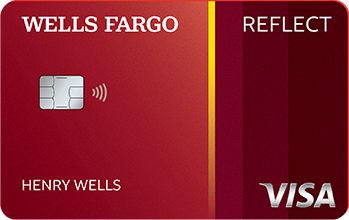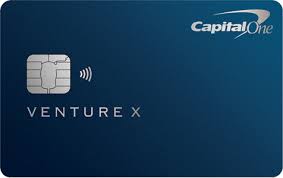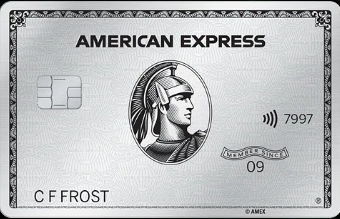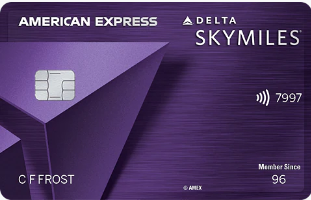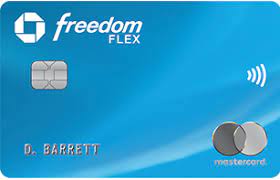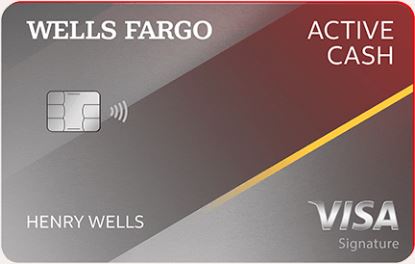Best Credit Cards for Cell Phone Insurance
About Megan
Megan Brame is a five-time award-winning content strategist whose content centers around helping others develop a better understanding of finance and marketing. Her website is https://bramecreative.com
Read full bio
At a Glance
In today’s digital age, our smartphones have become essential tools for both personal and professional life. However, accidents can happen, and repairing or replacing a damaged or lost phone can be costly. That’s where credit card cell phone protection comes in. Let’s delve into what it is, how it works, what’s covered, and whether it’s worth it. Additionally, six competitive credit cards offer this protection to be aware of.
In this article, you’ll learn:
- Best credit cards for cell phone protection
- Summary of the credit cards for cell phone protection
- What credit card cell phone protection is
- How cell phone protection works
- What’s covered with credit card cell phone protection
- Cell phone protection vs. purchase protection
- Alternatives to credit card cellphone insurance
- Methodology
- FAQs
Best credit cards for cell phone protection
Each of the following credit cards offer standout features in addition to competitive cell phone protection, making them viable options to add into your wallet:
Wells Fargo Reflect Card
Reward rate: N/A
Intro APR: 0% intro APR for 21 months from account opening
Regular APR: 18.24%, 24.74%, or 29.99% variable depending on credit worthiness
Signup bonus: N/A
Our verdict: The Wells Fargo Reflect Card offers a competitive introductory APR period with no annual fee, making it an attractive option for those seeking to pay off existing balances. Additionally, the card provides valuable benefits such as cell phone protection and travel insurance, enhancing its overall value proposition. However, potential applicants should be aware of the variable APR, which means interest rates may fluctuate based on market conditions. Overall, the Wells Fargo Reflect Card is worth considering if you’re looking for a straightforward cashback card with solid perks and no annual fee.
Pros:
– No annual fee
– Cell phone protection
– Travel insurance benefits
Cons:
– Variable APR
– Possible eligibility requirements for optimal rewards
Apply now: Wells Fargo Reflect®
Learn more: Wells Fargo Reflect Card Review
Capital One Venture X Rewards Credit Card
Reward rate: Earn 10x miles on hotels and rental cars booked through Capital One, 5x miles on flights booked through Capital One, and 2x miles on all other purchases
Intro APR: N/A
Regular APR: 19.99%-29.99%
Signup bonus: Earn 75,000 miles once you spend $4,000 on purchases within the first 3 months of account opening.
Our verdict: The Capital One Venture X Rewards Card is a premium travel credit card that offers a plethora of benefits tailored to frequent travelers. With a substantial welcome bonus, flexible redemption options, and generous rewards rates on both travel and everyday purchases, this card stands out in the crowded travel rewards market. Additionally, cardholders can enjoy perks such as airport lounge access, travel credits, and Global Entry/TSA PreCheck application fee reimbursement. While the annual fee may seem steep, the card’s numerous benefits and rewards potential more than justify the cost for those who frequently travel and value luxury perks.
Pros:
– Substantial welcome bonus
– Flexible redemption options
– High rewards rates on travel and everyday purchases
– Airport lounge access
– Travel credits
Cons:
– High annual fee
– Potential for less value for infrequent travelers
Apply now: Capital One Venture X Rewards Credit Card
The American Express Platinum Card
Reward rate: Earn 5x membership rewards points on flights and hotels booked through Amex travel along with 1x membership rewards points on all other purchases
Intro APR: N/A
Regular APR: 21.24%-29.24%
Signup bonus: Earn 125,000 membership rewards points after you spend $8,000 on purchases on your new card in the first 6 months of card membership
Our verdict: The American Express Platinum Card is a premium credit card that offers a wealth of benefits tailored to frequent travelers and luxury seekers. With its extensive list of perks, including airport lounge access, travel credits, elite status with hotel and car rental programs, and concierge services, this card provides unparalleled value for those who frequently travel and indulge in luxury experiences.
Additionally, the card’s Membership Rewards program offers flexible redemption options, allowing cardholders to maximize the value of their points on travel, dining, and more. While the annual fee may seem steep, the card’s comprehensive benefits package and premium services make it well worth considering for those who can take full advantage of its offerings.
Pros:
– Extensive list of travel perks, including airport lounge access and travel credits
– Elite status with hotel and car rental programs
– Concierge services for personalized assistance
– Membership Rewards program with flexible redemption options
– Amex Offers for statement credits and discounts at select merchants
Cons:
– High annual fee
– Limited acceptance at some merchants compared to Visa and Mastercard
Apply now: American Express Platinum Card
Delta SkyMiles Reserve American Express Card
Reward rate: Earn 3x miles on delta purchases and 1x miles on all other eligible purchases
Intro APR: N/A
Regular APR: 20.99%-29.99%
Signup bonus: Earn 100,000 bonus miles after you spend $6,000 in purchases on your card within 6 months of account opening
Our verdict: The Delta SkyMiles Reserve American Express Card is an excellent choice for frequent Delta flyers looking to elevate their travel experience and enjoy exclusive perks. With benefits such as complimentary Delta Sky Club access, priority boarding, and an annual companion certificate, this card offers substantial value for those who frequently travel with Delta.
Additionally, cardholders can earn generous miles on Delta purchases and enjoy elite status perks, such as waived baggage fees and priority check-in. While the annual fee may be higher compared to other cards, the Delta-specific benefits and opportunities for earning and redeeming SkyMiles make this card a compelling option for loyal Delta customers seeking premium travel experiences.
Pros:
– Complimentary Delta Sky Club access
– Priority boarding and priority check-in
– Annual companion certificate for domestic flights
– Generous miles earning rate on Delta purchases
– Elite status perks, including waived baggage fees and priority security screening
Cons:
– High annual fee
– Limited flexibility compared to general travel rewards cards
Apply now: Delta SkyMiles Reserve American Express Card
Chase Freedom Flex
Reward rate: Earn 5% on quarterly rotating categories, 5% on travel, 3% on dining, 3% on drugstore purchases, and 1% on everything else
Intro APR: 0% intro APR for 15 months on purchases and balance transfers
Regular APR: 20.49%-29.49%
Signup bonus: Earn $200 after you spend $500 on purchases in the first 3 months from account opening.
Our verdict: The Chase Freedom Flex card is a versatile cashback credit card that offers a compelling rewards program and a range of valuable benefits. With no annual fee, cardholders can earn cashback rewards on everyday purchases, including rotating bonus categories that change quarterly, allowing for maximum rewards potential.
Additionally, the card provides benefits such as purchase protection, extended warranty coverage, and a generous sign-up bonus, making it an excellent option for individuals seeking a simple yet rewarding credit card. While the rotating bonus categories may require some planning, the potential for earning significant cashback rewards across various spending categories makes the Chase Freedom Flex card a top choice for those looking to maximize their rewards without paying an annual fee.
Pros:
– No annual fee
– Rotating bonus categories for earning cashback rewards
– Generous sign-up bonus
– Purchase protection and extended warranty coverage
– Flexible redemption options, including statement credits, direct deposit, or travel
Cons:
– Need to activate quarterly bonus categories
– Foreign transaction fees for international purchases
Apply now: Chase Freedom Flex
Learn more: Chase Freedom Flex Credit Card Review
Wells Fargo Active Cash Card
Reward rate: 2% unlimited cash back
Intro APR: 0% intro APR for 15 months on purchases and balance transfers
Regular APR: 20.24%, 25.24%, or 29.99% depending on credit worthiness
Signup bonus: Up to $200 cash back when you spend $500 in purchases on the card in the first 3 months
Our verdict: The Wells Fargo Active Cash card presents a straightforward and rewarding cashback experience for cardholders, making it a solid option for individuals seeking simplicity and value. With an unlimited 2% cashback rate on all purchases and no annual fee, this card offers consistent and hassle-free rewards on everyday spending.
Additionally, the card features a generous welcome bonus for new cardholders, enhancing its appeal for those looking to earn rewards from the start. While it may lack some of the bells and whistles of premium cards, its simplicity and high cashback rate make the Wells Fargo Active Cash card a compelling choice for individuals focused on maximizing their cashback earnings without dealing with complex rewards structures or fees.
Pros:
– Unlimited 2% cashback rate on all purchases
– No annual fee
– Generous welcome bonus for new cardholders
– Simple and straightforward rewards structure
Cons:
– May lack some premium perks offered by other cards
– Foreign transaction fees for international purchases
Apply now: Wells Fargo Active Cash® Card
Learn more: Wells Fargo Active Cash® Card Review
Summary of the credit cards for cell phone protection
| Credit Card | Rewards Rate | Welcome Offer | Annual Fee | APR | Credit Needed |
|---|---|---|---|---|---|
| Wells Fargo Reflect Card | N/A | N/A | $0 | 18.24%, 24.74%, or 29.99% | Fair to Good |
| Capital One Venture X Rewards | Earn 10x miles on hotels and rental cars booked through Capital One, 5x miles on flights booked through Capital One, and 2x miles on all other purchases | Earn 75,000 miles once you spend $4,000 on purchases within the first 3 months of account opening. | $395 | 19.99%-29.99% | Good to Excellent |
| The American Express Platinum Card | Earn 5x membership rewards points on flights and hotels booked through Amex travel along with 1x membership rewards points on all other purchases | Earn 125,000 membership rewards points after you spend $8,000 on purchases on your new card in the first 6 months of card membership | $695 | 21.24%-29.24% | Excellent |
| Delta SkyMiles Reserve American Express Card | Earn 3x miles on delta purchases and 1x miles on all other eligible purchases | Earn 100,000 bonus miles after you spend $6,000 in purchases on your card within 6 months of account opening | $650 | 20.99%-29.99% | Good to Excellent |
| Chase Freedom Flex | Earn 5% on quarterly rotating categories, 5% on travel, 3% on dining, 3% on drugstore purchases, and 1% on everything else | Earn $200 after you spend $500 on purchases in the first 3 months from account opening. | $0 | 20.49%-29.49% | Good |
| Wells Fargo Active Cash | 2% unlimited cash back | Up to $200 cash back when you spend $500 in purchases on the card in the first 3 months | $0 | 20.24%, 25.24%, or 29.99% | Good |
What Is credit card cell phone protection?
Credit card cell phone protection is a benefit offered by certain credit cards that provides coverage for damage, theft, or loss of your cell phone. It acts as an insurance policy, offering reimbursement for repair or replacement costs, subject to specific terms and conditions.
How does credit card cell phone protection work?
When you pay your monthly cell phone bill with an eligible credit card, you automatically activate the cell phone protection coverage associated with that card. If your phone is damaged, stolen, or lost, you can file a claim with your credit card issuer to receive reimbursement for repair or replacement expenses, up to a certain limit.
What’s covered with credit card cell phone protection?
The items included in cell phone protection can vary drastically, but they most commonly include:
- Damage from accidental drops or spills
- Theft
- Loss
- Mechanical breakdowns (varies by issuer)
- In some cases, accessories may also be covered
What’s typically not covered
Cell phone protection issued by your credit card provider will not cover everything, though, and what’s excluded can vary from provider to provider. However, the following is generally not covered:
- Cosmetic damage that does not affect the phone’s functionality
- Damage due to negligence or misuse
- Damage covered by the manufacturer’s warranty
- Phones not purchased with the eligible credit card
Is cell phone protection worth it?
Whether cell phone protection is worth it depends on individual circumstances and preferences. It can be especially beneficial for frequent travellers, individuals prone to accidents, or those who rely heavily on their smartphones for work or personal use. However, it’s essential to assess the coverage limits, deductibles, and any additional costs associated with the credit card.
Cell phone protection vs. purchase protection
While cell phone protection specifically covers damage, theft, or loss of your cell phone, purchase protection offered by credit cards typically covers any purchased item against damage or theft for a limited period, usually 90 to 120 days from the date of purchase.
Alternatives to credit card cellphone insurance
If your credit card doesn’t offer cell phone protection or if you’re looking for additional coverage, there are alternative options available, such as standalone cell phone insurance plans offered by mobile carriers or third-party insurance providers.
Methodology
To determine the best credit cards for cell phone insurance, we analysed various factors, including coverage limits, deductibles, ease of filing claims, customer reviews, and additional benefits offered by each card.
FAQs
Yes, most credit cards with cell phone protection typically cover damage from accidental drops or spills, including cracked screens.
You can check your credit card’s terms and benefits guide or contact your card issuer directly to inquire about cell phone protection coverage. Look for keywords like “credit cards with cell phone insurance” or “best credit card for cell phone protection” in your card’s documentation.
Some credit cards with cell phone protection may have a deductible that you’ll need to pay when filing a claim for smartphone insurance.
This varies by credit card issuer. Some credit cards with cell phone protection offer primary coverage, meaning it pays out before any other insurance you may have, while others offer secondary coverage, which kicks in after any other applicable insurance, such as the best phone insurance or best cell phone insurance plan.
Most credit cards with cell phone protection typically cover the primary cardholder’s eligible cell phone and may extend coverage to additional lines on the same account. Be sure to check the specific terms and conditions of your credit card’s smartphone insurance coverage to ensure your device is eligible.
AppleCare+ is a separate product offered by Apple that provides extended warranty coverage and technical support for Apple devices, including iPhones. It’s essential to compare the coverage, costs, and terms of both options to determine which is the best insurance plan for mobile phones for your needs.
Secondary coverage means that your credit card’s insurance policy kicks in after any other applicable insurance you may have, such as homeowner’s or renter’s insurance. It’s essential to understand whether your credit card offers secondary or primary cell phone protection.

